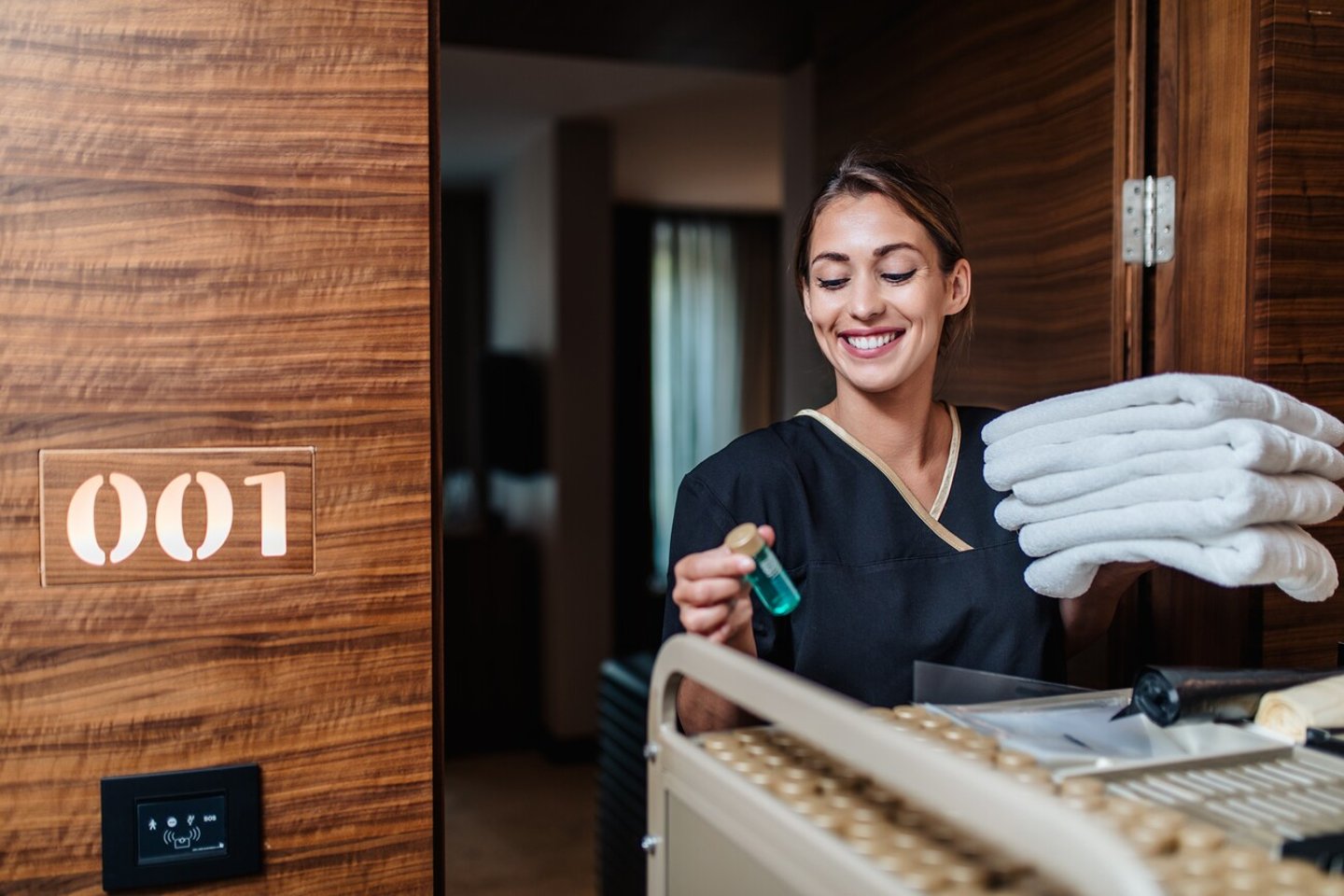Implement AI to Boost Employee Engagement, Retain Workforce
Compared to the turnover rate average of 13% across other U.S. industries, the 73.8% rate experienced by the leisure and hospitality industries is staggering. Even if this trend comes as no surprise to industry veterans, there's no reason why we should all accept it. Implementing emerging technologies like AI can positively influence employees' feelings and attitudes at work while consistently improving worker retention and supporting your bottom line in the process.
Artificial intelligence is often discussed in the media for its ability to eliminate manual jobs. Yet, its true potential lies in its power to assist employees and balance their workloads rather than take over work entirely. In fact, AI can become a tremendous asset to the behind-the-scenes functions of a hotel's HR department by helping retain valuable employees who help operations thrive.
Recognizing Why Hospitality Workers Are Dissatisfied
The reasons for the hospitality industry's historically high turnover rates are varied and complex. Some of the significant issues or unresolved challenges that often contribute to the problem are poor communication with employers, lack of scheduling flexibility, and the inability to share feedback. Not to mention, being continually understaffed makes it harder for you and your existing team to fulfill everyday responsibilities, be available for guests, and keep operations running smoothly.
The bottom line? Just like anyone else, hospitality workers want a say in how their jobs fit with their personal lives and professional needs. Meeting hourly employees where they are—on their phones—by automating tedious tasks like scheduling or onboarding can make all the difference.
Turn to AI for a More Effective Communication Solution
In my experience, communicating with employees through phone calls or emails can be incredibly inefficient. Gen Z workers and many Millennials typically look at calls as unwelcome intrusions. They avoid verbal confrontations or awkward conversations by not talking on the phone. However, they risk missing important, helpful, or timely messages in the process. This problem is an easy fix where AI can further improve your operations.
Two-way text with automation is an excellent solution as it allows you to engage hourly workers on their terms. Although they're constantly online, social media interactions have primed them to prefer instant chat over checking emails. With the right AI-based HR tech stack, employees and managers can communicate in real-time, refer to past conversations, and always stay informed.
AI Can Build Shift Schedules More Efficiently for Hotels
Scheduling shifts for your staff can be one of the more irritating and surprisingly complex tasks managers face. The hospitality industry is no exception. No matter what you come up with, you deal with frustrated workers, coverage gaps, constant absences, and impromptu turnover. It also means more back-office work and ongoing negotiation. In turn, there is less face time with workers.
AI can help your property maintain pace with its employees' changing needs, preferences, and availability. Using historical data to examine how busy your business is during each part of the day, along with the number of employees on staff to fill those hours, AI can auto-generate schedules and allow input for choosing regular schedules, applying for open ones, or trading shifts.
AI Can Encourage More Feedback from Your Employees
Working in the hospitality industry gives employees more freedom and mobility than they would experience in traditional office jobs—including opportunities to meet, serve, interact and talk with people from all walks of life. But, because of the fast pace and demands of the work, it can prove difficult for those same workers (and managers alike) to make time to give or receive feedback.
Feedback not only encourages communication but also improvement for all parties. It's not always easy for managers to see what needs to change or where to improve when it comes to keeping their employees engaged. AI tools automate how you receive feedback by sending out surveys on a recurring basis to gauge worker satisfaction and address concerns before they lead to turnover.
How to Introduce AI to Employees in Your Workplace
The potential uses for artificial intelligence within the hospitality industry are growing daily, especially for guest-facing customer-service employees. You can start by using AI technology to support back-office work. By seeing AI as a method for automating time-consuming tasks and reducing errors, rather than a competitor for their jobs, staff will soon understand its potential.
If you introduce AI-based tools during those first interactions with would-be employees, like in the applicant stage, you get added opportunities to familiarize people with the technology's benefits. The greatest way to let your employees introduce themselves to the technology is through firsthand experiences and interactions with it, like scheduling their interviews and assisting them with their applications while also completing the onboarding process once hired.
The Time to Consider Using AI Is Now
Despite its mixed coverage in the media, AI's functionality and practicality will only continue to increase, as will its use and growing acceptance. Of course, this doesn't mean artificial intelligence will replace the human aspect of the hospitality industry or hotel employees. With a clear vision and thorough strategy from hotel management, AI can significantly support a property's various functions and staff, which ultimately reduces both turnover rates and operational costs.
About the Author
Desmond Lim is the co-founder and CEO of Workstream, the smart people platform for the hourly workforce. He built Workstream to empower the deskless economy with the tools and technologies they need to do their jobs better. Today, Workstream helps 20,000+ businesses hire and retain hourly workers through its mobile-first, AI-powered platform. Desmond is a Harvard University and MIT Media Lab graduate and investor at Dorm Room Fund.

